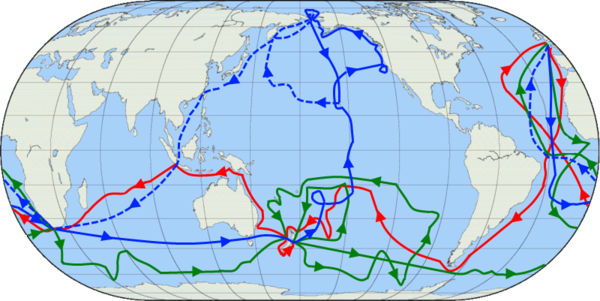“Punting the Pundits” is an Open Thread. It is a selection of editorials and opinions from around the news medium and the internet blogs. The intent is to provide a forum for your reactions and opinions, not just to the opinions presented, but to what ever you find important.
Thanks to ek hornbeck, click on the link and you can access all the past “Punting the Pundits”.
Follow us on Twitter @StarsHollowGzt
Gail Collins: Arms and the Duck
We had a shooting near the Empire State Building. An aggrieved ex-employee of an apparel company killed his former co-worker, and was himself killed by police. Except for the famous-landmark location, it was not actually a very big story. Remember the mass shooting at the lumberyard in North Carolina earlier this year, or the one last October at the California cement plant? No? Neither does anybody else except the grieving families.
Nine passers-by were also wounded, and it seems almost certain that some or all were accidentally hit by the police. This isn’t surprising; it’s only in movies that people are good shots during a violent encounter. In 2008, Al Baker reported in The Times that the accuracy rate for New York City officers firing in the line of duty was 34 percent.
And these are people trained for this kind of crisis. The moral is that if a lunatic starts shooting, you will not be made safer if your fellow average citizens are carrying concealed weapons.
Sahar Aziz: Creeping Counterterrorism: From Muslims to Political Protesters
Few Americans are surprised to hear that 9/11 shifted our domestic terrorism focus from neo-Nazis and white supremacists to Muslims in America. What may come as a surprise, however, is the pervasive use of anti-terrorism powers against non-Muslims as well, including white middle-class protesters – as we saw in the Occupy movement.
The 9/11 terrorists’ warped misinterpretation of Islam triggered a maelstrom of expanded national security powers selectively enforced against American Muslims en masse. Mosques are infiltrated with dubious and highly paid informants, thereby chilling religious freedom. Mentally unstable young Muslim men are targets of overzealous counterterrorism sting operations, and Muslim student associations are under mass surveillance for no apparent reason other than the religious identity of their members. Despite the serious civil liberties implications of such selective enforcement, it has occurred with minimal opposition by the American public.
Our shortsighted forfeiture of civil liberties based on fears of the “Muslim other” now equips our government to quash political dissent.
On Thursday, Mitt Romney unveiled the latest in a series of bad ideas for taking government duties out of Washington and hiding them in the back rooms of state capitols. Mostly, Mr. Romney wants to allow states to quietly smother social programs the federal government has run for decades. In the case of his new energy policy, he wants to give states power to bypass Washington’s caution in burrowing for oil, gas and coal on federal lands.
States, he said, could accelerate the permitting process for energy extraction, resulting in far more production than Washington has allowed. That’s probably true because many states have traditionally been poor stewards of their resources. They are far more captive than the federal government to the energy and timber interests that have long pressed for this concession and have far less oversight by government inspectors and journalists.
No state, on its own, has an interest in preventing global climate change or reducing energy imports for strategic reasons. Those are national issues that need to be closely supervised by a government with broader interests than competing with the next state for oil leases. Bypassing those controls, which frustrates Mr. Romney and his generous supporters in the energy industry, are at the heart of his new energy policy.
Robert Reich: Romney’s Lying Machine
I’ve been struck by the baldness of Romney’s repetitive lies about Obama — that Obama ended the work requirement under welfare, for example, or that Obama’s Affordable Care Act cuts $716 billion from Medicare benefits.
The mainstream media along with a half-dozen independent fact-checking organizations and sites have called Romney on these whoppers, but to no avail. He keeps making these assertions.
Every campaign is guilty of exaggerations, embellishments, distortions, and half-truths. But this is another thing altogether. I’ve been directly involved in seven presidential campaigns, and I don’t recall a presidential candidate lying with such audacity, over and over again. Why does he do it, and how can he get away with it?
Richard (RJ) Escow: Banker Bill Harrison’s Bogus Brief for (Broken) Big Banks
Every day we rise and tell ourselves this will be a good day, free of that unique combination of predation, self-pity, mediocrity and disingenousness which characterizes the modern bank executive. And every day somebody proves us wrong.
Today it’s William B. “Bill” Harrison, Jr., the retired banker who engineered the mega-merger which created JPMorgan Chase. That means the capstone of Harrison’s career was the creation of an institution that has repeatedly broken the law, deceived its customers foreclosed on homeowners with a motley crew of college-aged temps known as “the Burger King kids,” received billions in public assistance …
… and still underperformed the Dow Jones average, dropping in stock value to $37.23 (Thursday’s closing price) from around $53 per share when it was created by Harrison in 2000.1 You’d have been better off buying Treasuries.
If that’s your idea of a stellar resume, you will no doubt read Harrison’s defense of mega-banks in the New York Times with great anticipation, an emotion which will be followed promptly thereafter by profound disappointment. Harrison’s apologia is as mediocre in its conception, as deceptive in its packaging, as vacant in its morality and as unimpressive in its execution as JPMorgan Chase itself.
And believe me, that’s saying something.
Eugene Robinson: For GOP, Storm Has Already Gathered
The uninvited participation of a hurricane at next week’s Republican convention would be superfluous. Buffeted by powerful internal winds, the party may be flooded with cash, but it’s already kind of a debris-strewn mess.
Who would have imagined that Topic A, in the days before GOP delegates gather in Tampa, would be abortion? Certainly the thought never crossed the minds of the convention planners who intended this four-day infomercial to be a nonstop indictment of President Obama’s performance on the economy. But the old line about the relationship between the political parties and their candidates-“Democrats fall in love, Republicans fall in line”-is so last century. [..]
But why does the Republican Party seek power? What does it really stand for? What does it hope to accomplish? What kind of America does it envision?
Keep an eye on that storm track as Isaac plows toward Florida. Maybe the elusive answers to those questions are blowin’ in the wind.



 After centuries of dormancy, Mount Vesuvius erupts in southern Italy, devastating the prosperous Roman cities of Pompeii and Herculaneum and killing thousands. The cities, buried under a thick layer of volcanic material and mud, were never rebuilt and largely forgotten in the course of history. In the 18th century, Pompeii and Herculaneum were rediscovered and excavated, providing an unprecedented archaeological record of the everyday life of an ancient civilization, startlingly preserved in sudden death.
After centuries of dormancy, Mount Vesuvius erupts in southern Italy, devastating the prosperous Roman cities of Pompeii and Herculaneum and killing thousands. The cities, buried under a thick layer of volcanic material and mud, were never rebuilt and largely forgotten in the course of history. In the 18th century, Pompeii and Herculaneum were rediscovered and excavated, providing an unprecedented archaeological record of the everyday life of an ancient civilization, startlingly preserved in sudden death. Those that did not flee the city of Pompeii in August of 79 AD were doomed. Buried for 1700 years under 30 feet of mud and ash and reduced by the centuries to skeletons, they remained entombed until excavations in the early 1800s.
Those that did not flee the city of Pompeii in August of 79 AD were doomed. Buried for 1700 years under 30 feet of mud and ash and reduced by the centuries to skeletons, they remained entombed until excavations in the early 1800s.


 Hawaii’s natural beauty, warm tropical climate, inviting waters and waves, and active volcanoes make it a popular destination for tourists, surfers, biologists, and volcanologists alike. Due to its mid-Pacific location, Hawaii has many North American and Asian influences along with its own vibrant native culture. Hawaii has over a million permanent residents along with many visitors and U.S. military personnel. Its capital is Honolulu on the island of Oahu.
Hawaii’s natural beauty, warm tropical climate, inviting waters and waves, and active volcanoes make it a popular destination for tourists, surfers, biologists, and volcanologists alike. Due to its mid-Pacific location, Hawaii has many North American and Asian influences along with its own vibrant native culture. Hawaii has over a million permanent residents along with many visitors and U.S. military personnel. Its capital is Honolulu on the island of Oahu.
Recent Comments